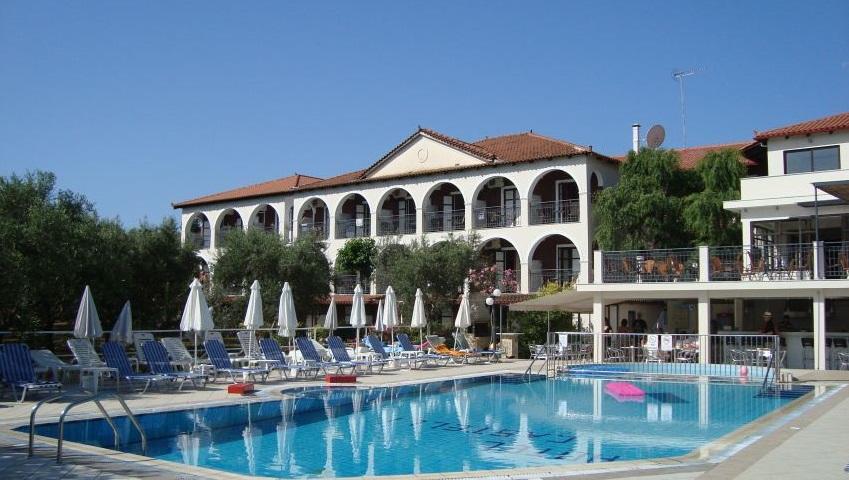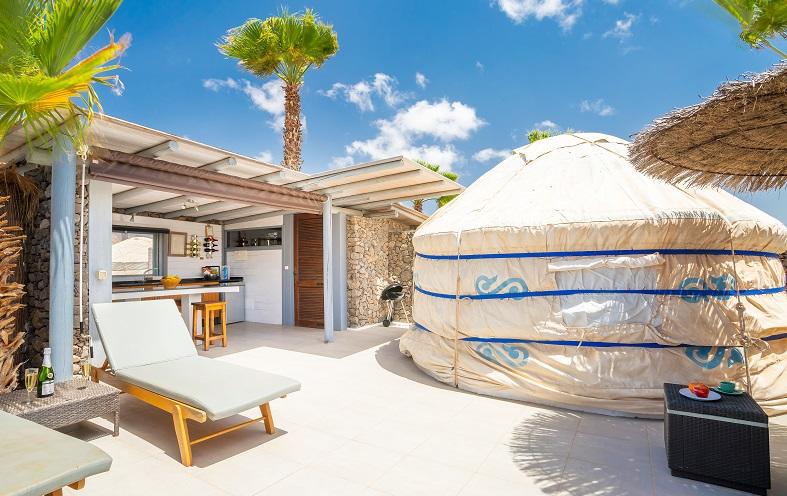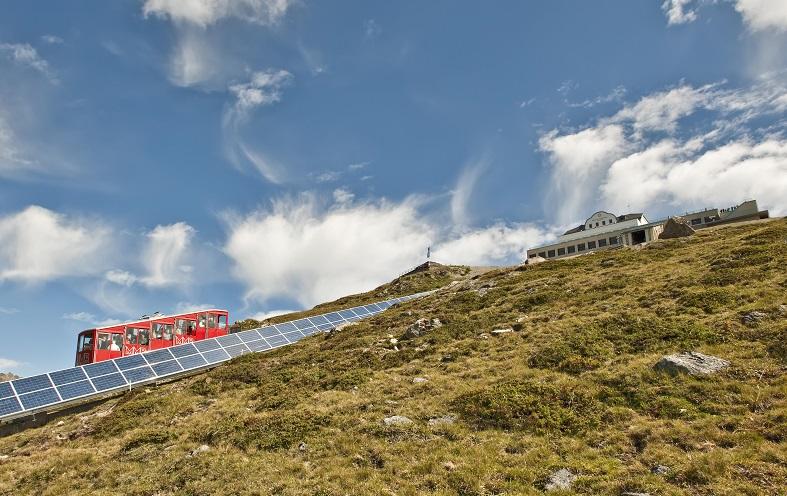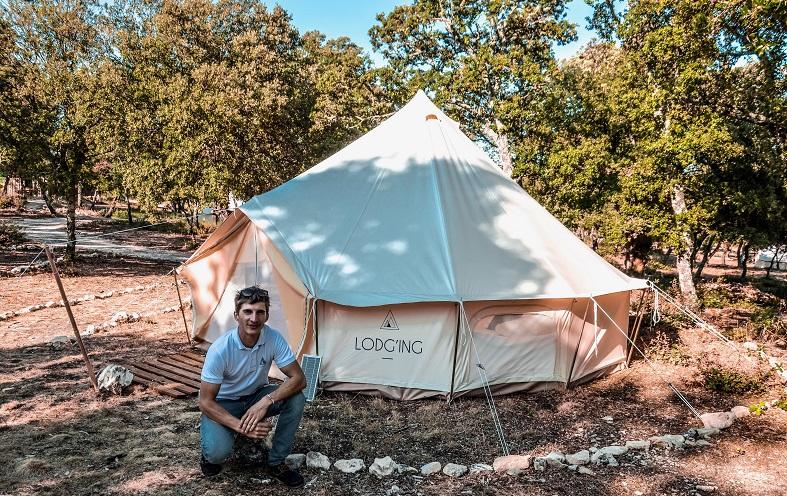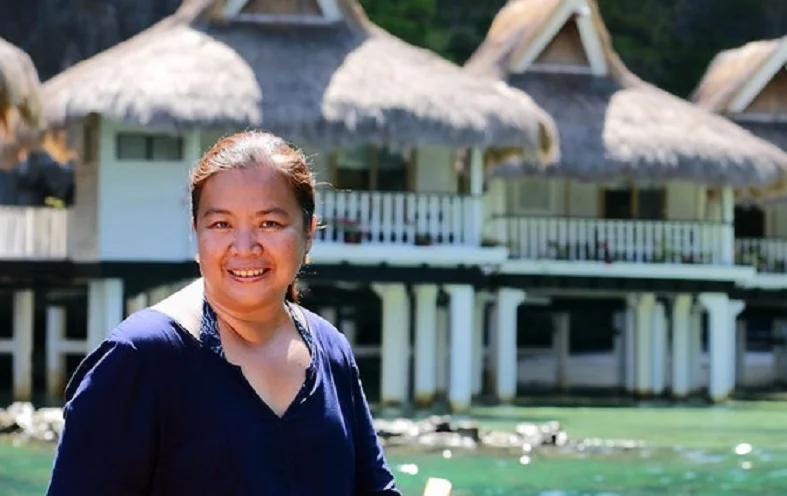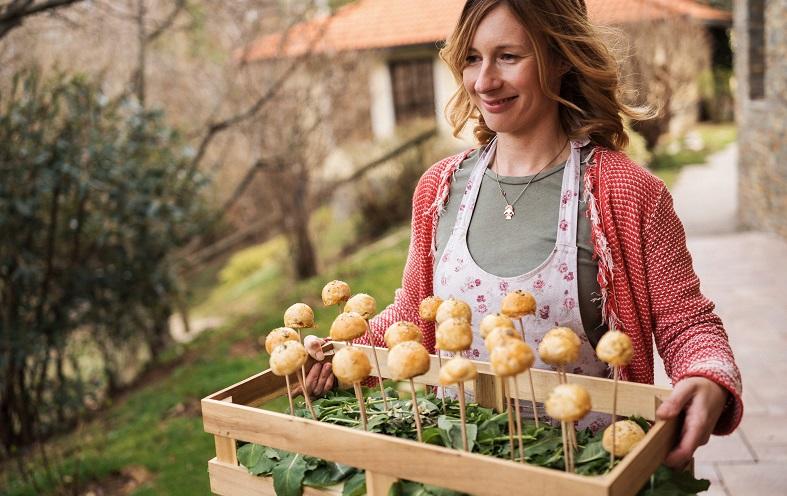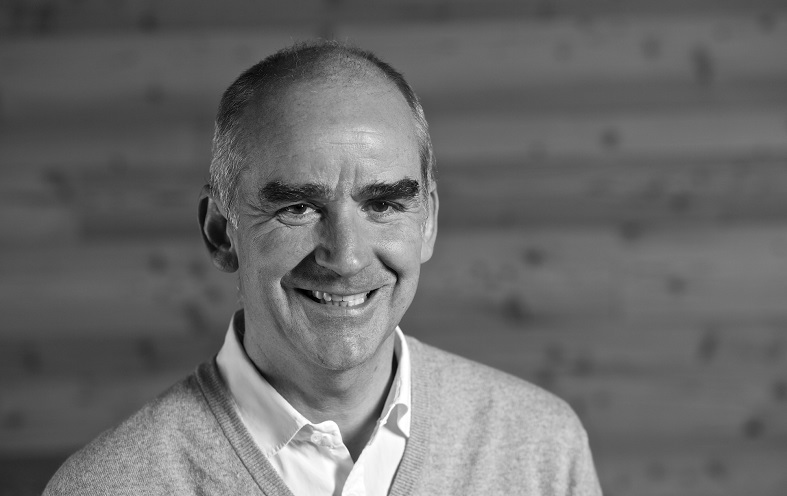Maria Lougari, General Manager at Castelli Hotel in Greece, in this interview presents the award-winning hotel’s approach to sustainability – its initiatives, challenges and successes. She further reflects on the state of tourism sustainability in Greece and shares useful tips for hoteliers eager to “go green”.
Learn about:
- Why Castelli Hotel focuses on sustainability: the benefits and return on investment;
- Which of the many sustainability initiatives at the hotel Maria Lougari is especially passionate about;
- How Castelli Hotel markets its sustainability profile;
- How destination marketers can avoid “overtourism”;
- The current state of tourism sustainability in Greece;
- Advice for hoteliers on how to promote sustainability internally and externally.
Maria, do you remember when you discovered your passion for travel and sustainability? Who or what triggered your interest?
I dare to say that our passion for sustainability was created together with our urge to provide quality hospitality services. Not a minute later! This year we are happy to celebrate the 25th anniversary of our hotel, whose story is linked to “Eucalyptos”, the oldest eucalyptus tree of Zakynthos island. Not just because the couple that started Castelli Hotel (Spiros & Anastasia) first met there, but because the desire to save this tree is the reason why our hotel building has a C shape. We sacrificed more “hotel” space in order to save a tree, which has been around hundreds of years before the property owners, not to mention tourism!
Sustainability is fundamental for our business strategy. Around 1989, when today’s “green trend” did not exist (or at least was not that vivid) we were already very conscious about the importance of the natural environment. Travelers always appraise the environment they spend their holidays in. A hotel’s location adds important value to the service it offers to its guests. The better maintained and respected the natural environment, the better the guests’ experience!
We believe strongly that the interaction with the local environment and the local community has an important impact on our guests’ holiday in that it creates unique experiences linked to cuisine, nature, architecture, customs and festivities.
You are the owner of Castelli Hotel on the Greek island of Zakynthos. Among the many sustainability initiatives practiced at your hotel, which one are you particularly passionate about?
Passion is the “keyword” of how we choose to operate; thank you for allowing me to use this term!
Among our many operational practices aimed at sustainability, what stands out is our solar panels, which cover all the hotel’s needs for warm water.
In terms of “green” initiatives and activities offered to our hotel guests, we are very passionate about biodiversity protection. Since 1992, Castelli has been the first hotel on the island to actively support the protection of the endangered species of Zakynthos’ National Marine Park.
As the sunniest island of the entire Mediterranean, Zakynthos is the preferred nesting place for the protected Loggerhead sea turtle (Caretta Caretta). We offer a weekly presentation on the conservation of the Caretta Caretta, in collaboration with an NGO. Guests learn about the turtles, and if they like, can adopt one and thereby create a special bond with this species which will last much longer than their holiday.
Next to the hotel, we have created a farm with organic vegetables, a botanical garden, a composting unit and plants and animals which are typical for the area. Every week we take our guests on a tour through the farm, for an opportunity to get to know and interact with Greek nature. We explain which products we use in the hotel restaurant and invite them to smell the lavender, to cut oregano, to pick lemons from the tree and to help us with the olive harvest.
There are of course also many hiking and biking activities our guests can join.
Sustainability and marketing don’t always work well together in tourism. How do you approach this at Castelli Hotel? For example, do you actively market/promote your sustainability credentials?
We actively and most proudly promote our sustainability credentials and international recognition externally and internally. For example, we include the green profile in our hotel presentation, be it in casual or corporate settings. We also communicate our sustainability efforts digitally via social media, in press releases, orally and through souvenirs for our guests.
We find that sustainability and marketing do go well together and that increasingly our “green” profile is driving sales to our hotel. This has changed over the years in a multiplying way.
More and more guests tell us that they have chosen our hotel – apart from the corporate features – due to our sustainability profile. When guests actually take part in our green activities, we see the “sparkle” in their eyes: this makes our days rewarding and our team happy.
When guests have booked our hotel randomly, without knowing that we are an awarded green hotel, they usually are genuinely interested and enthusiastic about this characteristic when they find out.
Certainly, the guests’ environmental education influences greatly their response to our campaigns. Different level of education, age group, nationality, even the economic situation of the traveller, it all takes part in one’s perception of how important “greening” is.
Especially in countries like Greece, where environmental education is still quite young (despite the magnificence and importance of the beauty and magic of the Greek nature), it is challenging to demonstrate the importance of sustainability practices, without risking to present yourself as simply more luxurious or expensive compared to others.
Only recently has the importance of sustainable growth been accepted more widely. We find that also in Greece it is now common for travellers to choose a slightly more expensive unit if it is “green”.
As a property owner, is your commitment to sustainability-driven by a desire to “do good”, or does it also make sense, financially? What’s your return on investment?
“Do good” is definitely one of the fundamental values of why we want to be “green” as a property. “Being green” has become so fashionable lately. Now we really need to want to do good, and not just “pretend”.
You need to mean well, in order to be green. And we try to always think and act positively. As we say to our team members, before communicating anything about sustainability to our guests, we need to first be absolutely sure that we will follow through with this measure.
Living our values of social and environmental responsibility also earns us respect from our guests, for example when we collect and donate plastic bottle caps in order to obtain a wheelchair for people in need.
Our hotel’s sustainability commitment leads to various benefits:
Social benefits:
- the local community benefits from our donations;
- the positive atmosphere in the hotel;
- staff members are inspired and have a sense of fulfilment and accomplishment by participating in sustainability initiatives;
- health: staff members and guests enjoy a better environment (e.g. environmental friendly detergents!)
Economic benefits:
The bigger the investment, the clearer the return on investment. For example, when we planted the solar panels, from day 1 the production of warm water was fulfilling its goal 100%. Whereas when the investment is low, then more time is needed for financial gains to appear.
Take for example our rooms’ recycling program: all our guestrooms offer a balcony recycle bin. Guests are encouraged to separate their recyclables during their holidays, the housekeeping team has less to carry and the hotel’s waste footprint is smaller.
Of course, as noted earlier, the fact that modern travellers are prepared to spend 10% more on a sustainable hotel compared to a more “indifferent” one speaks for itself.
More and more destinations are reaching a state where overcrowding, or “overtourism” is becoming a serious concern, threatening their ability to ensure healthy, authentic and quality experiences for visitors. In your view, what should destination marketers and managers do to prevent such a situation from happening, for example on Zakynthos?
We are lucky to operate in a sector as fulfilling and positive as tourism. In cases where destinations receive a lot of visitors, in my view, those are first of all successful, which is positive. That said, if the tourism product (destination) loses its identity, then that’s not the visitors’ fault. It means that the tourism professionals and marketers have not protected the destination enough.
Destination marketers should aim for a blend of modernizing and maintaining the local characteristics and traditions.”Traditional” elements are important for the ambience of the destination. But stakeholders also need to establish rules and operational methods which ensure a high quality of products and services at the destination.
Today’s guests are seasoned travellers who seek experiences (which is now the tourism “product”). Factors such as square meters, star rating and number of pools are – without an authentic, local character – insufficient to provide such experiences.
Greece has been troubled by a severe economic crisis over the last years. Has this affected your ability to operate Hotel Castelli sustainably?
In Greece, “sustainability” is often conceived as “luxury”. That’s why during the economic crisis we actively promoted our competitive rates and offers.
We have undergone a major renovation project these last years, during which we have completely redesigned our product and profile, and also upgraded the services we offer. Thus we are actually going through an era of constant growth in volume and sales, despite the economic crisis.
What we have noticed is that during the economic crisis it has been more difficult to source sustainable products, especially locally, from the island of Zakynthos. Things like recycled paper for printing have become expensive due to the low demand. The result is that we have to source such supplies from further away, such as Athens, which then makes it more expensive and also adds to our carbon footprint.
We always insist on sustainable practices among our suppliers to suit our hotel profile. Thankfully, green practices have finally become trendy, so more suppliers offer “green” products. But this in turn attracts “greenwashing”, so we have to be more alert and read the fine prints to find out if a product really lives up to our sustainability expectations and is not just labelled as such.
Hotel Castelli has achieved sustainability certification at the highest level. Why did you decide to seek certification? And which aspects of the certification process –Green Key and now Travelife – is the most difficult? Which are the challenges?
We are pleased to have joined Travelife and to have achieved such high results in both the Travelife system (almost 10 years now) and the Green Key (since 2010). We also adhere to the ISO 14001 standard, which certifies our environmental management.
Certification is very important for our establishment. It brings the satisfaction of doing the right thing, benefits the local community and gives recognition to our team members. Certification also ensures the public and our potential clientele that our hotel is actually following through with its green practices. Certification makes our business stand out, while at the same time international awards make it easier for our conscious guests to find us!
Definitely, the certification procedure is demanding for smaller accommodation providers like us. And executing our “Castelli is green” strategy is a challenge sometimes. Usually, certifications are designed for bigger establishments, so certain criteria are harder to fulfil for smaller companies.
What we find very positive is how major tour operators now support sustainable tourism and promote in their brochures the green profile of hotels, and how they care for the environment.
For example, TUI offers the TUI Environmental Champion award, which evaluates the hotel’s environmental practices and how they are communicated to its guests. The guests and the tour operator both assess the hotels on these parameters. Castelli has been awarded this recognition twice! Only 100 hotels every year are awarded, globally, so this means a lot to our team, and brings our hotel and the island of Zakynthos forward.
What would be your advice for hotels on how to promote their sustainability initiatives, internally to suppliers and staff, and externally to guests and community?
First of all, be sincere. If a company decides to become sustainable, it is an important decision and a precious one! One never goes back to the “before sustainability” era. It is nevertheless demanding. When we communicate to the public, internally or externally, that we are “green”, all we say needs to be accurate and truthful. By no means should a professional overstate what is being achieved.
Secondly, be visible. Our approach is to communicate by all means possible our achievements, the green practices and how our guests truly enjoy their involvement. We try and communicate to our collaborators and colleagues the importance of our recognition internationally, nationally, and how easy it is to start approaching things with a sustainability mindset
We feel that hoteliers have a special obligation in terms of environmental education, to communicate sustainability to our guests. After all, it is a luxury to have their attention during guests’ leisure time, when they are more relaxed and receptive.
This makes it a great opportunity to communicate the ease and delight of being sustainable especially to those guests who perhaps don’t yet behave sustainably in their everyday life. We may succeed in making their eyes sparkle with a new passion for culture and nature. And this is what makes hospitality such a precious profession!
Thank you, Maria.
More about sustainability at Castelli Hotel here or connect with Maria Lougari on LinkedIn.
 This interview was facilitated by Travelife for Hotels and Accommodations, the sustainability management scheme used by Castelli Hotel to measure sustainability performance. See all interviews powered by Travelife here.
This interview was facilitated by Travelife for Hotels and Accommodations, the sustainability management scheme used by Castelli Hotel to measure sustainability performance. See all interviews powered by Travelife here.
Enjoyed our interview with Maria Lougari about sustainability at Castelli Hotel on Zakynthos Island in Greece? Share and spread the word!



